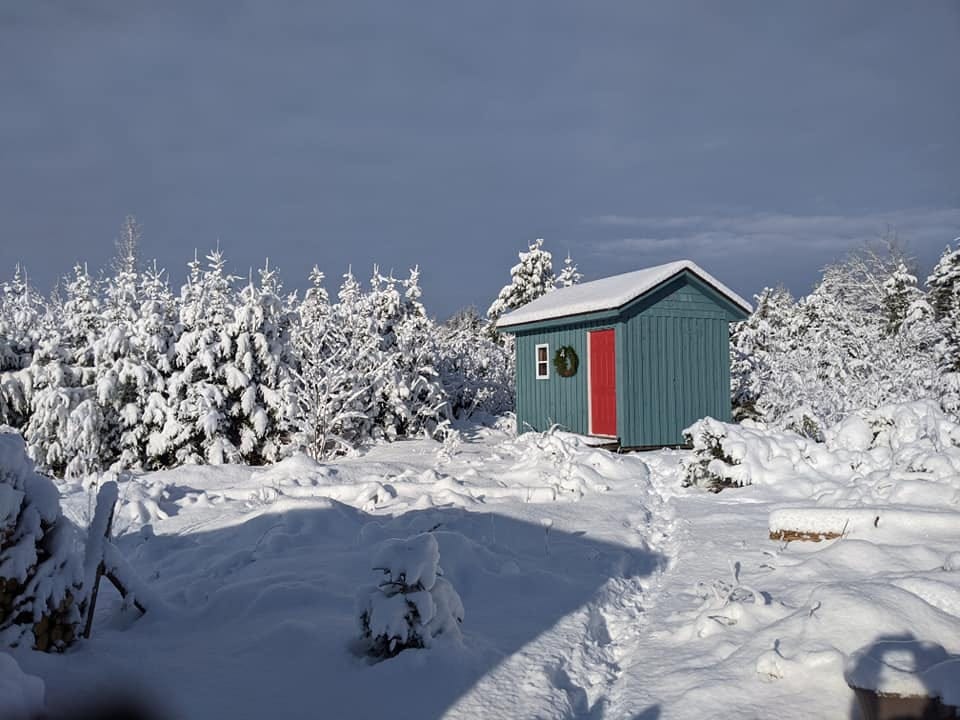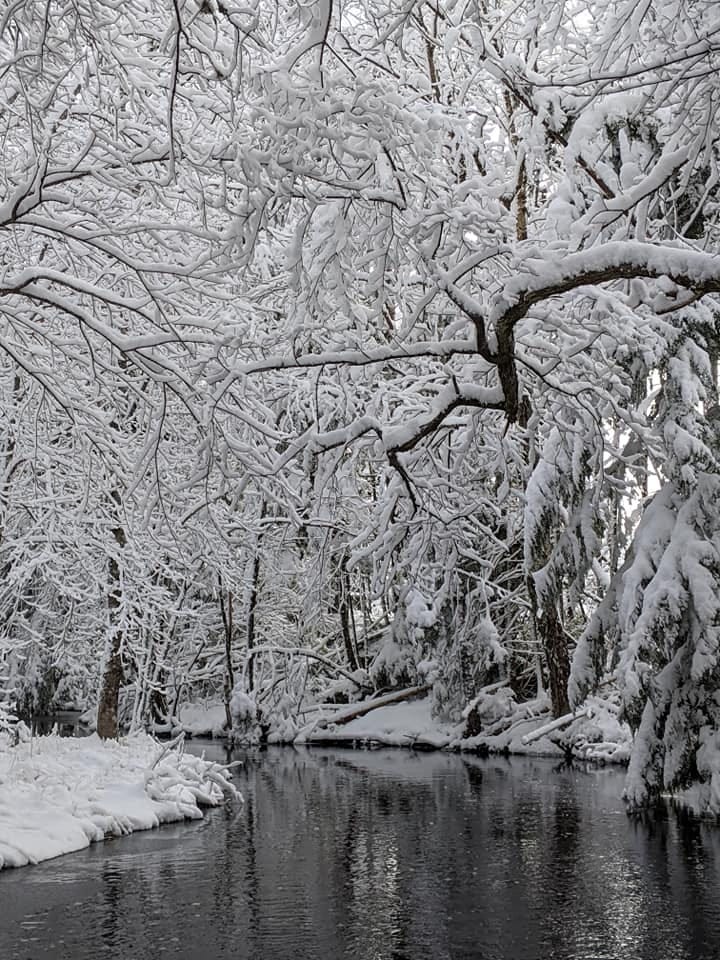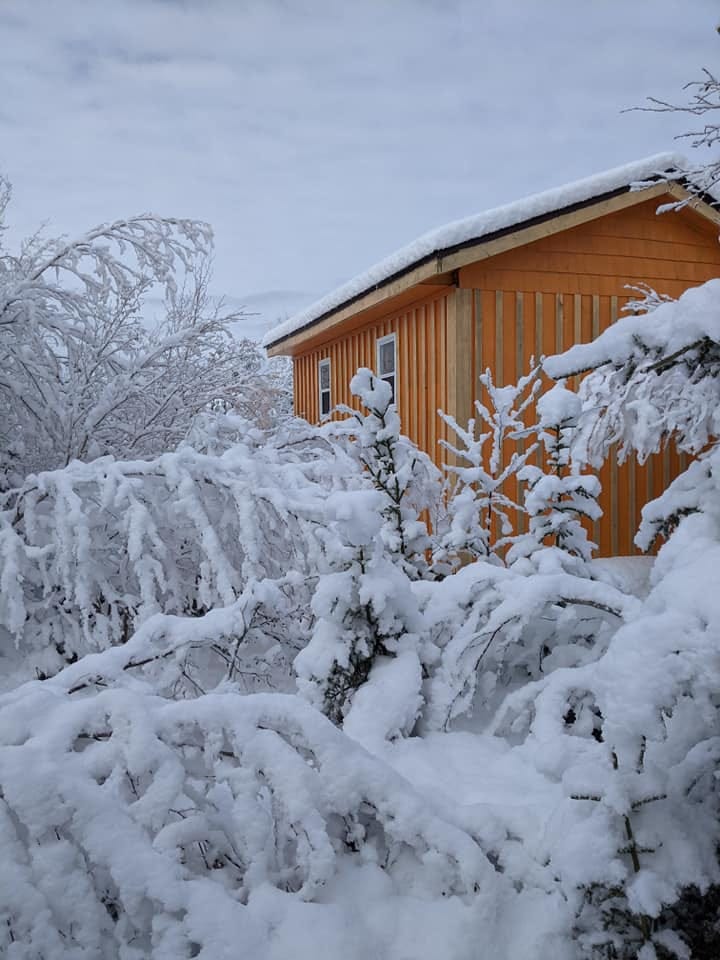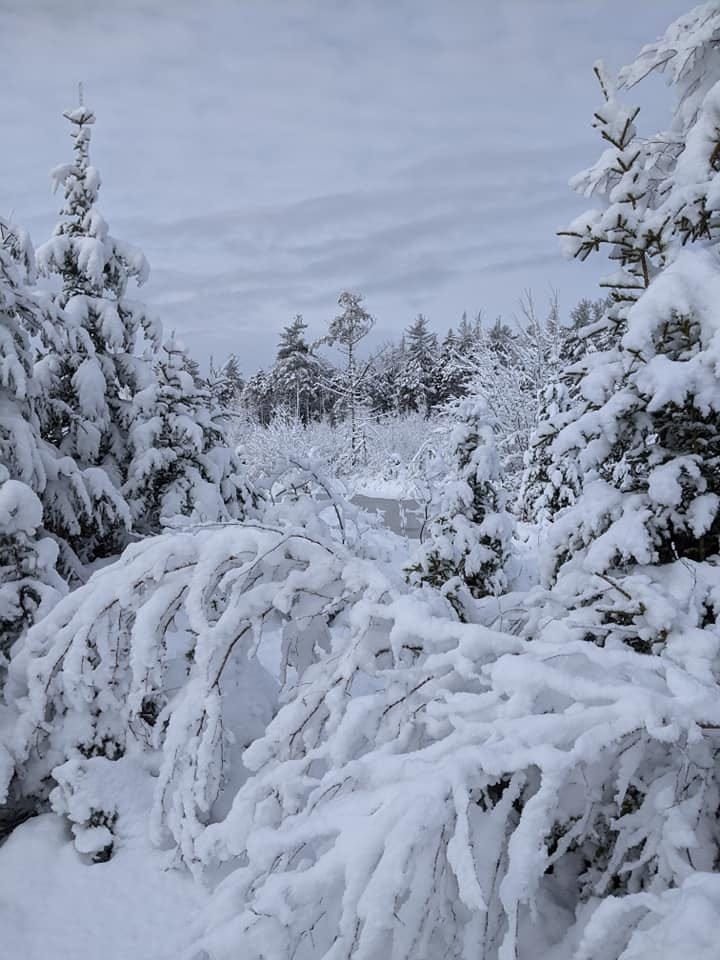The Middle House (aka one of our storage sheds).
We’ve had a relatively easy winter so far with higher than average temperatures and next to no snow. Both of those concern me. It’s hard to tell whether they’re part of the climate crisis, La Nina, or because of both. But I believe that less snow we have the more likely we’ll experience an extended drought this summer.
Now why would I believe that?
Well, consider this post from the U.S. National Integrated Drought Information System: “Snow droughts reduce the amount of available water for spring and summer snow melt. This, in turn, reduces or shifts the timing of streamflow and reduces soil moisture, which can have impacts on water storage, irrigation, fisheries, vegetation, municipal water supplies, and wildfire.”
The brook behind our home.
Last summer, after we moved here in May, the brook behind our home dried up completely. Looking at the image above I know that’s hard to imagine. But day after day of heat and high humidity (roughly around 38 to 40 degrees day after day) and no rain conspired to absorb the water until only stones were left.
We went without water for two weeks. More than anything we found it inconvenient. We kept rain barrels and buckets out under the eaves to collect the water from the intermittent showers (which were never enough to recharge the stream). The water we collected we used for washing (mostly sink sponge baths), to flush the toilet, and so on. The jugs of drinking water we picked up went toward cooking and dish washing. Even so, we made out better than a lot of people with wells in Southwestern Nova Scotia. Many of them were two or more months without water.
Our home and the woodshed before digging out this morning.
The weather forecasters, as is so often the case these days, didn’t see this one coming. They called for 10 to 15 centimetres of snow. What came down was closer to 25. Of course, larger and fiercer storms are what the experts have been predicting for years now as a result of the climate crisis.
The Environmental Defence Fund in the U.S., for instance, has this to say: “It may seem counterintuitive, but the increase in snowfall during winter storms may be linked to climate change.
“Remember — there is more moisture in the warmer atmosphere. So when the temperatures are below freezing, snowfall can break records.
“And scientists are studying a possible connection between a warming Arctic and cold spells in the eastern United States. The idea is that a rapidly warming Arctic can weaken the jet stream, allowing frigid polar air to travel farther south.”
We use a giant squeegee to clear snow off our solar panels, but to some degree they will also melt the snow and ice as well.
NASA is a bit more circumspect. Here’s what they have to say from a March 10, 2020 blog post: “There’s no easy answer, says Joao Teixeira, co-director of the Center for Climate Sciences at NASA’s Jet Propulsion Laboratory in Pasadena, California, and science team leader for the Atmospheric Infrared Sounder (AIRS) instrument on NASA’s Aqua satellite. “Within the scientific community it’s a relatively well-accepted fact that as global temperatures increase, extreme precipitation will very likely increase as well,” he says. “Beyond that, we’re still learning.
“While there’s not yet a full consensus on the matter, in recent years a body of evidence linking extreme weather with climate change has begun to emerge. Evidence from satellites, aircraft, ground measurements and climate model projections are increasingly drawing connections. Quantifying those interconnections is a big challenge.”
The Peach House. Yes, it’s another shed.
We can’t control the weather, but we can try and mitigate the impact of our behaviour on the planet and its climate. That’s one of the many reasons we choose to live off-grid. By doing so, we are using solar energy to power our house, pulling our water from the brook out back, and so forth.
We don’t have all the answers yet, not by a long shot. For instance, we still have gas-powered vehicles we use to get back and forth to work, to stores, and so on. But every little bit helps. I believe living off-grid is more sustainable than relying on large utilities for power and water.
Our pond in winter.
I also believe off-grid doesn’t necessarily mean living rurally on a large piece of land. I believe it could become a part of urban life (although it will present some problems initially; I plan to address this in a future post).
“Wine glasses” of ice that formed under the bridge across the brook.
This 25-centimetre snowfall means Steph was on the tractor for three hours today, working to plow out our lane, and she’ll be at it again tomorrow. And it calls for a lot of shovelling in and around the property, and sketchy rural roads to brave to town and back.
But that’s okay. More snow means more recharging of the brooks and rivers, which helps ease the potential of drought. And well, hey, it is gorgeous to look at and walk through.
Snow? I’ll take it any day.










Sure is pretty !
For the past five years, we've been off-grid now we've noticed that the summers are hotter and a lot of people we know run dry constantly since then.
We even had to get a new septic field after engineers had tested our ground and approved one system, only to find out that the tested ground was only so dry and it was a totally different thing when fall and some rain came.
Maybe all the clear-cutting and the, therefore, missing "filter" of the forest means that the water in the ground can evaporate faster?!
And if it comes to wintery conditions....well, we've learned that we definitely don't rely on the forecast. Just are always prepared not having to leave if the weather does look kind of unpredictable. Also taking into consideration that we know that we're in a rural area and it sometimes takes the plows 2-3 days to get the main road cleared.
Also, every time we do find someone in the ditch (which happens a lot), they're out there because the just had to get some milk (speaking of being prepared) and the cars...yeah, I know winter tires are expensive, but, if you live rurally, all year tires just don't cut it! Then, no shovel, or a bag of sand or even a blanket (to stay warm in case you're stranded) in the trunk and often being in such a rush that they don't clear the iced-up windows....well, what a surprise you land in the ditch! But these are just some thoughts "no the side".